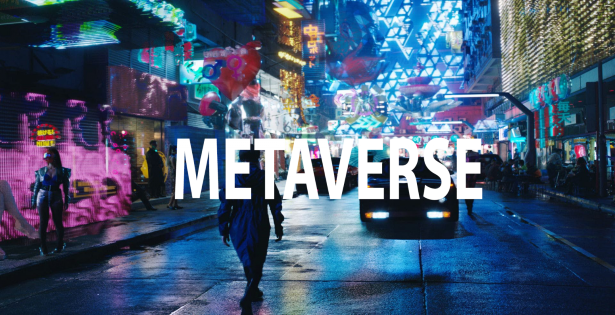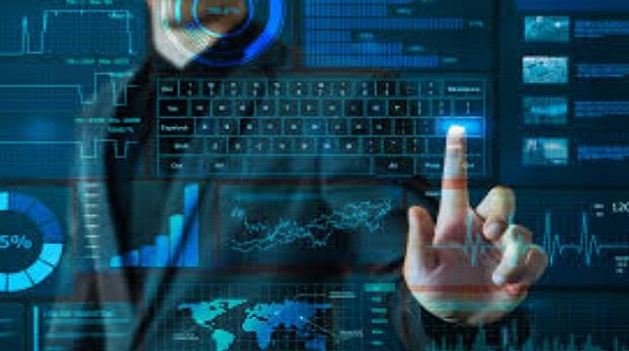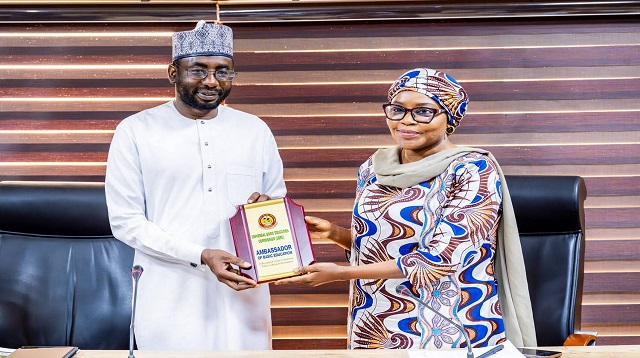E-Business
Microsoft Plans Metaverse Dominance with Activision Blizzard

Software giant, Microsoft is planning to dominate the metaverse with its move to acquire Activision Blizzard, a game development and interactive entertainment content publisher, in a mega deal.

This is according to market analyst firm GlobalData, after the US-headquartered software firm announced it will acquire Activision Blizzard for $95 per share, in an all-cash transaction valued at $68.7 billion, inclusive of Activision Blizzard’s net cash.
This transaction has become the biggest tech merger and acquisition deal in history.
In making the announcement, Microsoft said the acquisition “will provide building blocks for the metaverse”.
Rupantar Guha, principal analyst at GlobalData’s thematic team, says taking part in what is the biggest tech merger and acquisition to date reflects Microsoft’s desire to dominate the metaverse.
“The company is focused on acquiring both Activision’s communities and content – two essential parameters for success in the metaverse. Activision’s popular games franchises Call of Duty and Overwatch, and the communities it commands, will position Microsoft as a leader in the metaverse.”
The metaverse is a virtual reality (VR) space in which users can interact with a computer-generated environment and other users.
According to Statista, as of October 2021, the total market capitalisation of Web 2.0 metaverse companies was $14.8 trillion.
It notes that for gaming and eSports and also Facebook (now known as Meta after an October 2021 restructuring and pivot to VR), this figure sits much lower at $1.98 trillion and $0.90 trillion, respectively.
Guha notes Microsoft is formidable competition for Meta, Epic Games, Tencent and Roblox, all of which are scrambling for dominance in this emerging mataverse theme.
“While the metaverse is still largely conceptual, Microsoft’s strength in underlying themes such as artificial intelligence, augmented reality, virtual reality and cloud computing give it a leadership position in this theme.”
He believes Activision’s games will help Microsoft create metaverse experiences and provide an established global consumer base to test and market them.
“Microsoft ranks second out of 44 companies in GlobalData’s gaming thematic sector scorecard, which ranks companies based on their leadership in the 10 themes that matter most to the gaming industry – generating a leading indicator of future performance. Microsoft is second only to Tencent, while Activision Blizzard ranks 13th on the scorecard.
“Following the acquisition, Microsoft will gain a dominant position in eSports, a growing theme where it has struggled to make a mark in the past. Additionally, Activision is a mobile gaming leader with plans to launch more mobile titles in the future. The takeover will strengthen Microsoft’s position in the mobile gaming market, which will be worth $272 billion by 2030, according to GlobalData forecasts.”
When the transaction closes, Microsoft will become the world’s third-largest gaming company by revenue, behind Tencent and Sony, says the software firm.
E-Business
AI Slows Down some Experienced Software Developers, Study Finds

Contrary to popular belief, using cutting-edge artificial intelligence tools slowed down experienced software developers when they were working in codebases familiar to them, rather than supercharging their work, a new study found.

AI research nonprofit METR conducted the in-depth study, on a group of seasoned developers earlier this year while they used Cursor, a popular AI coding assistant, to help them complete tasks in open-source projects they were familiar with.
Before the study, the open-source developers believed using AI would speed them up, estimating it would decrease task completion time by 24%. Even after completing the tasks with AI, the developers believed that they had decreased task times by 20%. But the study found that using AI did the opposite: it increased task completion time by 19%.
The study’s lead authors, Joel Becker and Nate Rush, said they were shocked by the results: prior to the study, Rush had written down that he expected “a 2x speed up, somewhat obviously.”
The findings challenge the belief that AI always makes expensive human engineers much more productive, a factor that has attracted substantial investment into companies selling AI products to aid software development.
AI is also expected to replace entry-level coding positions. Dario Amodei, CEO of Anthropic, recently told Axios that AI could wipe out half of all entry-level white collar jobs in the next one to five years.
Prior literature on productivity improvements has found significant gains: one study found using AI sped up coders by 56%, another study found developers were able to complete 26% more tasks in a given time.
But the new METR study shows that those gains don’t apply to all software development scenarios. In particular, this study showed that experienced developers intimately familiar with the quirks and requirements of large, established open source codebases experienced a slowdown.
Other studies often rely on software development benchmarks for AI, which sometimes misrepresent real-world tasks, the study’s authors said.
The slowdown stemmed from developers needing to spend time going over and correcting what the AI models suggested.
“When we watched the videos, we found that the AIs made some suggestions about their work, and the suggestions were often directionally correct, but not exactly what’s needed,” Becker said.
The authors cautioned that they do not expect the slowdown to apply in other scenarios, such as for junior engineers or engineers working in codebases they aren’t familiar with.
Still, the majority of the study’s participants, as well as the study’s authors, continue to use Cursor today.
The authors believe it is because AI makes the development experience easier, and in turn, more pleasant, akin to editing an essay instead of staring at a blank page.
“Developers have goals other than completing the task as soon as possible,” Becker said. “So they’re going with this less effortful route.”
E-Business
Firm Uncovers $500K Crypto Heist Through Malicious Packages

Kaspersky GReAT (Global Research and Analysis Team) experts have discovered open-source packages that download the Quasar backdoor and a stealer designed to exfiltrate cryptocurrency. The malicious packages are intended for the Cursor AI development environment, which is based on Visual Studio Code — a tool used for AI-assisted coding.

The malicious open-source packages are extensions hosted in the Open VSX repository that claim to provide support for the Solidity programming language. However, in practice, they download and execute malicious code on users’ devices.
During an incident response, a blockchain developer from Russia reached out to Kaspersky after installing one of these fake extensions on his computer, which allowed attackers to steal approximately $500,000 worth of crypto assets.
The threat actor behind these packages managed to deceive the developer by making the malicious package rank higher than the legitimate one. The attacker achieved this by artificially inflating the malicious package’s downloads count to 54,000.
After installation, the victim gained no actual functionality from the extension. Instead, malicious ScreenConnect software was installed on the computer, granting threat actors remote access to the infected device.
Using this access, they deployed the open-source Quasar backdoor along with a stealer that collects data from browsers, email clients, and crypto wallets. With these tools, the threat actors were able to obtain the developer’s wallet seed phrases and subsequently steal cryptocurrency from the accounts.
After the malicious extension downloaded by the developer was discovered and removed from the repository, the threat actor republished it and artificially inflated its installation count to a higher number – 2 million, compared to 61,000 for the legitimate package. The extension was removed from the platform following a request from Kaspersky.
“Spotting compromised open-source packages with the naked eye is becoming increasingly difficult. Threat actors are using increasingly creative tactics to deceive potential victims, even developers who have a strong understanding of cybersecurity risks — particularly those working in the blockchain development field.
As we expect adversaries to continue targeting developers, it is recommended that even experienced IT professionals deploy dedicated security solutions to safeguard sensitive data and prevent financial losses,” commented Georgy Kucherin, Security Researcher with Kaspersky’s Global Research and Analysis Team.
The threat actor behind the attack published not only malicious Solidity extensions but also another NPM package, solsafe, which also downloads ScreenConnect. A few months earlier, three additional malicious Visual Studio Code extensions were released — solaibot, among-eth, and blankebesxstnion — all of them have already been removed from the repository.
E-Business
NITDA Reaffirms Commitment to 95% Digital Literacy by 2030, as UBEC Pledges Collaboration

Kashifu Inuwa CCIE, the Director General of the National Information Technology Development Agency (NITDA), has reaffirmed the Federal Government’s unwavering commitment to achieving 95% digital literacy across Nigeria by the year 2030, with an ambitious milestone of 70% by 2027.

This disclosure was made in total alignment with the present administration’s priority areas of reforming the economy for sustained inclusive growth and accelerating diversification through industrialisation, digitisation, creative arts, manufacturing, and innovation.
Making this known during a collaborative meeting hosted by the Universal Basic Education Commission (UBEC), Inuwa highlighted the government’s strategic prioritisation of human capital development as central to its national transformation agenda.
“We started this journey in 2023 when President Bola Ahmed Tinubu came on board and he made it clear that economic diversification and inclusivity are part of the administration’s agenda,” he noted.
“And the president outlined this in 8 priority areas to achieve the vision, with priority number 7 specifically focused on accelerating industrialisation, digitisation, creative arts, manufacturing, and innovation,” he added.
Recognising the importance of digital fluency in achieving this agenda, he stated that NITDA is committed to investing in the digital empowerment of citizens through the development of the National Digital Literacy Framework (NDLF), a strategic blueprint aligned with international best practices.
He added that to tailor the framework to Nigeria’s specific needs, 6 core competency areas were incorporated to include device and software operations, information and data literacy, communication and collaboration, content creation, safety, and problem solving.
He explained that the framework would address all levels of digital fluency, from basic, intermediate to advanced levels, to make digital skills accessible to every Nigerian, from primary school pupils to working professionals.
According to Inuwa, despite data limitations, NITDA estimates that Nigeria’s digital literacy rate currently stands at 50%, up from 44% in 2021, based on extrapolations from the World Bank’s Better Life Report.
The NITDA DG disclosed that the agency has been working closely with the Nigerian Educational Research and Development Council (NERDC) in developing a curriculum for digital literacy, which can be infused into formal education. Stating that the visit is a continuation of NITDA’s ongoing engagements with key education stakeholders, including the Federal Ministry of Education, the National Universities Commission (NUC), and the Nigerian Educational Research and Development Council (NERDC), all aimed at advancing digital literacy across all levels of learning.
Inuwa also revealed ongoing collaborations with global platforms such as Coursera to train teachers using AI-powered lesson generation tools and provide scalable online training.
It is worth recalling that late last year, NITDA partnered with the Nasarawa State University in collaboration with CISCO in launching the Digital Learning for NSUK (DL4NSUK) initiative to enhance digital literacy in tertiary institutions, and equipping graduates with the skills needed to be digitally proficient and globally competitive.
While stressing that the entire process, from curriculum development to classroom delivery, would require a whole-of-government and whole-of-society approach, Inuwa said, “This is not a journey we can walk alone; we must bring everyone on board, education stakeholders, technology providers, state governments, and international partners.”
In response to the DG’s remarks, UBEC Executive Secretary, Hajiya Aisha Garba, confirmed that the Commission has officially received the digital literacy curriculum developed by NITDA and NERDC and has commenced internal review processes.
She acknowledged the curriculum as robust and forward-looking but stressed the need for simplification to suit early learners and teachers, citing challenges such as curriculum overload, limited teacher capacity, and inadequate infrastructure as key barriers to effective implementation.
She pledged that UBEC, in partnership with the State Universal Basic Education Board (SUBEB), will lead efforts to equip schools with computers and solar-powered infrastructure to support real learning.
“We’re committed to working with NITDA and NERDC to refine the curriculum, train teachers, and ensure effective delivery. Let us align the technical vision with grassroots realities to make a lasting impact,” she concluded.
To formalise the implementation of the meeting’s resolutions, a joint inter-agency committee was established to develop strategic plans that will ensure the effective rollout of the digital literacy initiative, to equip young Nigerians with the essential digital skills required to thrive in an increasingly dynamic and technology-driven global landscape.

 News2 days ago
News2 days agoCheck Point Report Finds Africa as Top Target for Cyber-attacks

 E-Financial3 days ago
E-Financial3 days agoGOEs’ Remit Over ₦2tn to FG in 2024

 News2 days ago
News2 days agoJAMB Accuses Student of Securing Admission through Identity Fraud

 Telecom3 days ago
Telecom3 days agoMTN’s Karl Toriola and Business Leaders Champion Corporate Climate Reform

 General News3 days ago
General News3 days agoSenate Orders Full Probe into N1.3 Trillion CBEX Ponzi Scandal

 E-Business3 days ago
E-Business3 days agoNITDA Reaffirms Commitment to 95% Digital Literacy by 2030, as UBEC Pledges Collaboration

 E-Financial2 days ago
E-Financial2 days agoEFCC Recovers Funds Lost to CBEX Fraud

 General News3 days ago
General News3 days agoUpSkill Universe Launches ‘Skills for Business’ to Empower 10,000 African SMEs, in Collaboration with HP and Google



























